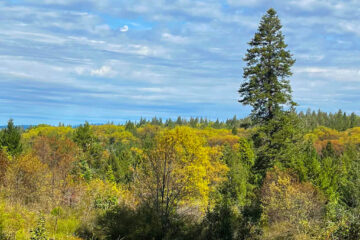Balance. It is something all human beings strive for through balancing work with loved ones, bills with recreation, and nature with progress. Balance, at times, can seem unattainable in a busy, ever demanding, world. However, balance is more within reach than most people realize. Community gardens are a prime example of balancing nature and progress.
A community garden is a plot of land which is cared for and gardened by a group of people. They are becoming prevalent in urban areas and are utilized for recreation and growing produce. Community gardens help bring a sense of connection to the community that participates, as well as reduce the impact of climate change by providing a source of local produce and decreasing the city’s carbon footprint. They are also aesthetically pleasing, especially when the gardens are juxtaposed with a concrete urban environment.
Cities nationwide are taking notice of this beneficial trend and are opening up land plots for neighborhoods to use as a community garden; they are becoming indispensible like a playground, skate park, or dog park. A city best known for its gardens (known as P-Patches) is Seattle. There are currently 56 P-Patches in Seattle and they are still expanding. Rooftop gardens have also become popular in the city. Milwaukee has recently released that they plan on adding 100, sustainable, community gardens to their city before next Earth Day. Locally, there are community gardens in Loomis, Lincoln, Sacramento, Colfax, and Auburn. The community garden in Auburn is at Auburn School Park Preserve which Placer Land Trust oversees. Members of a community garden usually contribute an annual membership fee to cover the costs of maintaining the land.
The American Community Garden Association (ACGA) helps to organize, train, and publicize community gardens nationwide. To find a local garden check out their website! Community gardens are becoming an essential way of life and provide healthy, fresh vegetables to people who might not otherwise have access to fresh produce. The gardens allow cities to become more sustainable and provide an aspect of beauty that is typically lost in a large city. Sustainability is quickly becoming a requirement with the wonderful consequence of transforming urban landscapes into welcoming backyards.
By Alyssa Harmon


